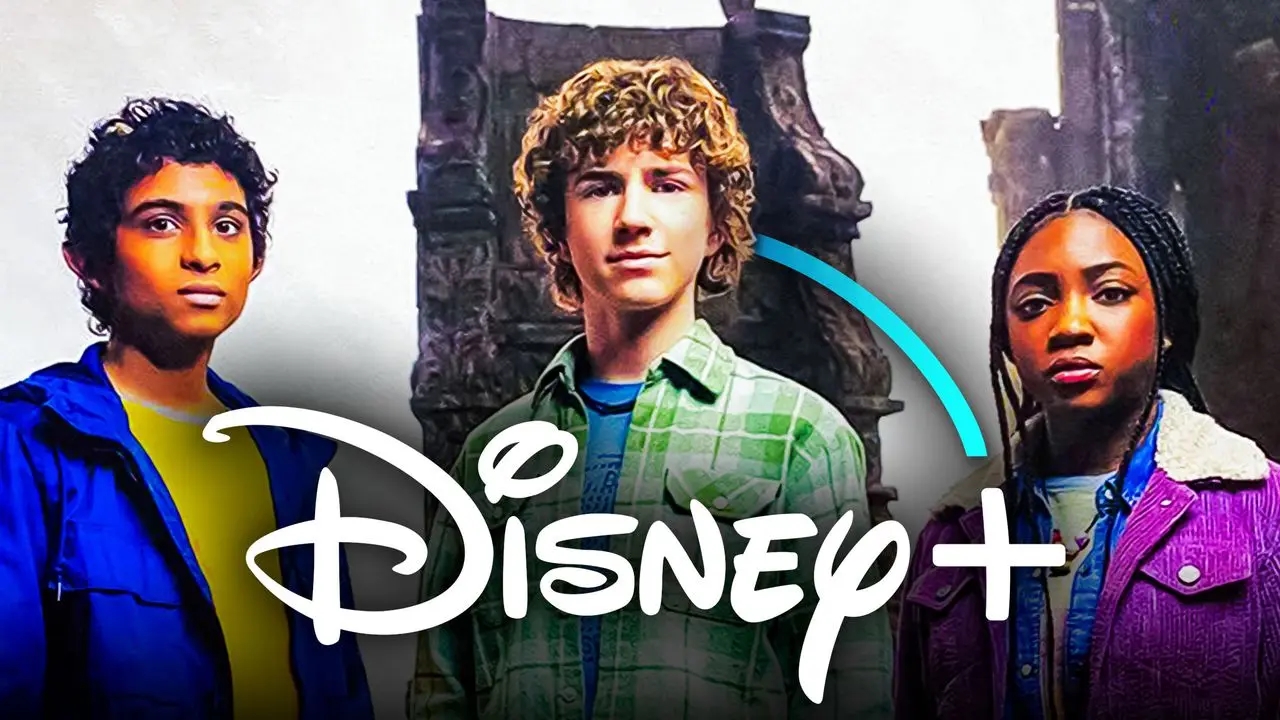Amid the backlash, Rebecca and Rick Riordan, producer and author of Disney+ Percy Jackson defend the casting decision, supporting the choice of Black Annabeth.
The highly anticipated Disney+ adaptation of Rick Riordan’s beloved book series, Percy Jackson and the Olympians, is slated for release in 2024. However, the recent casting of Leah Sava Jeffries, a Black actress, as Annabeth Chase has stirred significant controversy among fans and critics alike.
While the character of Annabeth is portrayed as white in the books, the show’s producer, Rebecca Riordan, and author Rick Riordan have fervently defended the casting decision. This article delves into the multifaceted aspects of the backlash and the producers’ defense, exploring the importance of diversity, representation, and the impact of prejudice in the entertainment industry.
Percy Jackson Producer Calls Out Casting Critics

Rebecca Riordan, the producer of Percy Jackson and the Olympians, took to social media to address the criticism surrounding the casting of Leah Sava Jeffries as Annabeth Chase. In her statements, she acknowledged the presence of individuals who misuse Rick Riordan’s books to spread hate.
However, she also expressed gratitude towards the respectful and supportive fans who have played an essential role in bringing the show to life. Rebecca Riordan emphasized that the character’s race was a “white default” during the time of publishing and argued that skin color or hair color does not define the essence of a character.
The producer’s response is not the first instance of the Riordans addressing race-related backlash. In a previous statement, Rick Riordan himself defended Leah Jeffries against online bullying and harassment, emphasizing that casting decisions were made based on the actors’ ability to embody the characters’ personalities. The author maintained that Leah Jeffries is the ideal Annabeth Chase for the adaptation, chosen after a thorough casting process.
Alexandra Daddario’s Previous Portrayal

It is worth noting that Alexandra Daddario, a well-known actress, previously portrayed Annabeth Chase in the film adaptation of “Percy Jackson & the Olympians: The Lightning Thief” released in 2010. The casting of Daddario, a talented actress, initially faced some criticism due to her having brown hair while Annabeth is described as having blonde hair in the books. However, her performance won over many fans, showcasing her ability to embody Annabeth’s fierce and resourceful personality.
For the sequel, “Percy Jackson: Sea of Monsters” in 2013, Alexandra Daddario returned to reprise her role as Annabeth, this time with blonde hair, more in line with the character’s description in the books.
Embracing Change and Evolving Interpretations

Now, in the upcoming Disney+ adaptation of Percy Jackson and the Olympians, Leah Sava Jeffries has been cast as Annabeth Chase. The choice to cast Jeffries has reignited discussions about the depiction of characters from the original source material.
While Alexandra Daddario’s portrayal was well-received by many fans, it is important to recognize that adaptations often involve casting changes. The Riordans and the production team have emphasized the significance of selecting actors based on their ability to bring the characters to life rather than adhering strictly to physical appearances.
The Importance of Embracing Diversity in Entertainment

The casting controversy surrounding Percy Jackson and the Olympians brings to the forefront the ongoing debate about diversity and inclusion in the entertainment industry. Proponents argue that embracing diversity not only reflects the real-world demographic but also allows a wider audience to connect with the characters and storyline. It also provides opportunities for talented actors from underrepresented communities to shine in meaningful roles.
Critics, on the other hand, argue that staying true to the source material is crucial for preserving the essence of the story and characters. They fear that altering characters’ appearances may alienate long-time fans and alter the core message of the narrative.
Emphasizing Talent and Merit Over Appearance

Rick Riordan’s firm stance on choosing actors based on their talent and merit rather than their physical appearance challenges the traditional industry approach. By focusing on the actors’ ability to bring the characters to life authentically, the production team aims to create a richer, more captivating on-screen experience. This approach underscores the importance of skill and dedication in making casting decisions, highlighting the need to move beyond preconceived notions about how characters should look.
Confronting Prejudice and Bias

The Riordans’ defense against the backlash emphasizes the prevalence of prejudice and bias in society. The assumption that Leah Jeffries was chosen solely to fulfill diversity requirements represents a form of prejudice. It undermines her hard work, talent, and accomplishments, reducing her achievement to mere tokenism.
This type of prejudiced thinking extends beyond the realm of entertainment and permeates various aspects of life. The Riordans’ response serves as a reminder to challenge these biases, promote inclusivity, and recognize individuals based on their abilities rather than superficial attributes.
As the Disney+ adaptation of Percy Jackson and the Olympians unfolds, fans will undoubtedly compare Leah Sava Jeffries’s portrayal of Annabeth Chase to Alexandra Daddario‘s previous performance. The casting decision has sparked conversations about changes in character depictions across different adaptations.
However, the importance of selecting actors based on their talent and ability to embody the characters’ personalities, as emphasized by the Riordans, remains central to the integrity of the show. As fans eagerly anticipate the series’ release, it is essential to approach these changes with an open mind and appreciate the actors’ dedication and hard work in bringing the beloved characters to life on-screen once again.
The Disney+ adaptation of Percy Jackson and the Olympians is scheduled for its debut in 2024.
